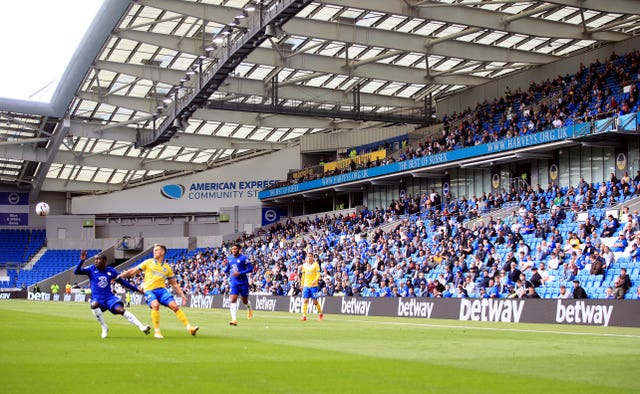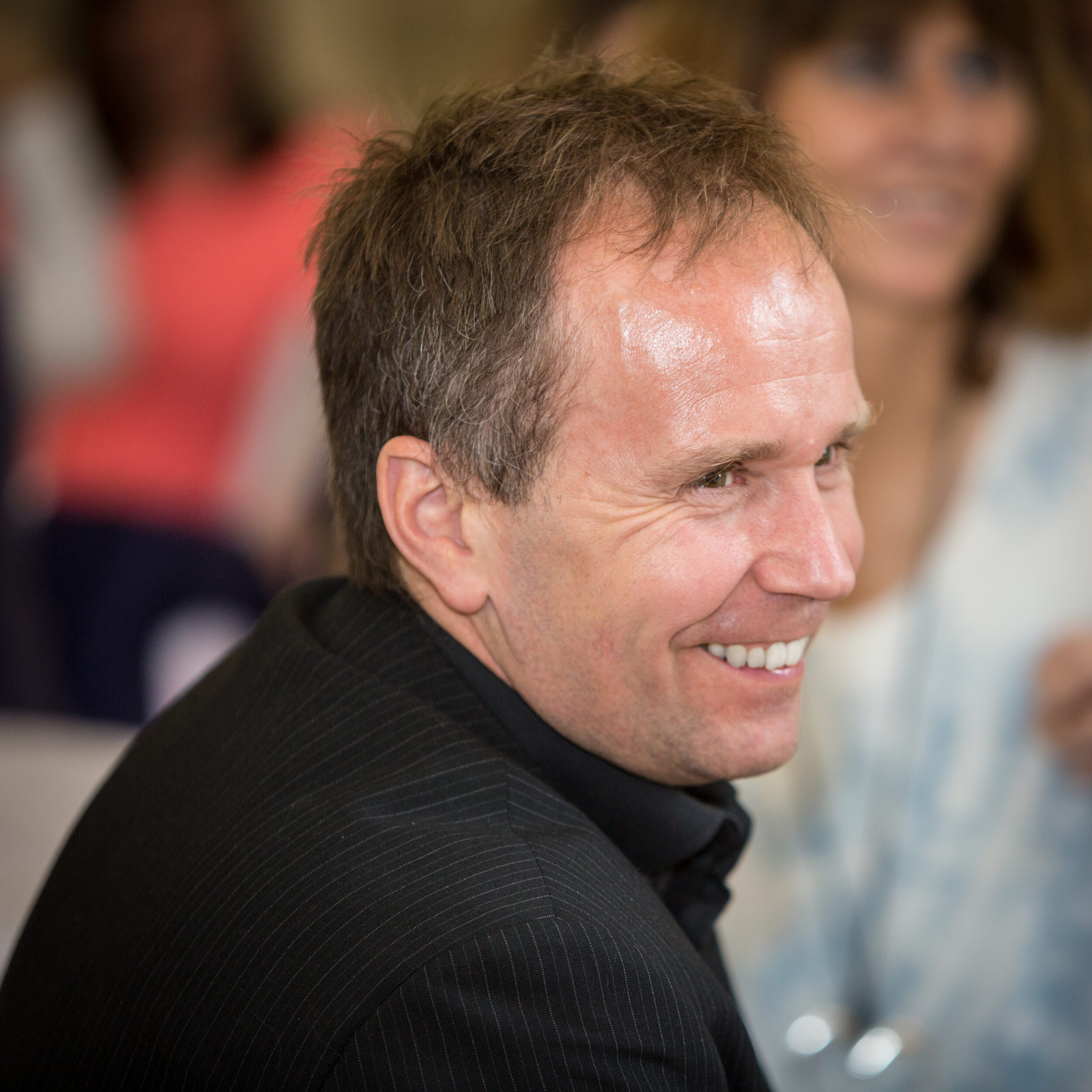Players will naturally find extra motivation to 'put on a show' when home fans return to grounds, according to a leading professor of sport psychology.
Under the Government's three-tier system following the end of national lockdown restrictions from December 2, up to 4,000 supporters will be able to go to games, depending on Covid-19 levels in the region.
Brighton chief executive Paul Barber is in no doubt the return of supporters will provide a psychological boost, with the potential for some Seagulls' fans to be at the Amex Stadium for the visit of Southampton on December 5.

Andrew Lane, professor of sport psychology and director of research excellence at the University of Wolverhampton, believes players will certainly feel different when they run out in front of supporters again for the first time since the pandemic halted football during March.
"The home advantage can work by exciting the players and making them more confident – Liverpool winning (so often) at home is partly a massive belief that they are going to win," Lane told the PA news agency.
"They have still got that (this season) and they go out with that intensity, with tactics which drive it – but when there are nearly 60,000 fans all pushing them in the same direction, that can make them feel that there is more commitment into it.
"There is also an interaction with the opposition, they are a bit more nervous about it."

Lane believes once everyone has adjusted to their new surroundings, both on the pitch and in the stands, then the away teams will once again be left facing up to a '12th man'.
"The home advantage will kick back in largely because the better clubs will gain the enthusiasm that they have got from the fact the crowd are coming, which will be the mechanism for the change," Lane said.
"They (players) will think: 'the crowd are coming, we are now going to put a show on' and that will be a really powerful persuading message.
"The fans that will be there are likely to be very receptive and there will be good interaction.
"You will feel like you are playing to a really positive crowd, that you have come home."
Lane added: "When you watching players in training, they usually score every shot – and sometimes the games (behind closed doors) have been running a bit like that, because the players are nice and calm.
"The crowd inform you that this really matters, which creates an edge – and you might snatch (at the ball) a bit more.
"Players can hear some of the specific comments from the crowd, you are only 10 yards away, and often it is not that great, then immediately that is all in your head and you have to process it. Everything adds up to a lot of noise.
"While we are not going to get the (crowd) intensity (from the lower numbers), there is going to be a greater expectation that fans are watching.
"That reminder there are so many people watching you gives you encouragement to try a bit harder."
Some clubs, though, will have to continue to play behind closed doors if their regions are placed in the highest tier of the localised restrictions.
Return of fans: reaction to this afternoon's announcement. #EFL pic.twitter.com/yZ0JLIlkss
— EFL Communications (@EFL_Comms) November 23, 2020
For those grounds where fans are allowed in, sports psychologist Martin Perry believes it is unlikely the limited number will be able to generate a significant change to the environment.
"Atmosphere comes from people grouped together not in isolation, so if you have tight clusters of people, then the atmosphere builds between them," Perry told PA.
"You can create a great atmosphere with 1,000 people, but they have to be of a similar mind and attitude.
"If you had 1,000 'ultras' in a stadium, then that is different to 1,000 people who don't sing or make noise.
"I don't think a maximum of 4,000 people scattered around a stadium in face masks is going to create a big change in atmospherics."
/https%3A%2F%2Fsportsmole-media-prod.s3.gra.io.cloud.ovh.net%2F20%2F37%2Fbhache.jpg)
/https%3A%2F%2Fsportsmole-media-prod.s3.gra.io.cloud.ovh.net%2F25%2F22%2Fmohamed-salah.jpg)
/https%3A%2F%2Fsportsmole-media-prod.s3.gra.io.cloud.ovh.net%2F21%2F38%2Fanthony-joshua.jpg)
/https%3A%2F%2Fsportsmole-media-prod.s3.gra.io.cloud.ovh.net%2F21%2F39%2Fpsgmnc.jpg)